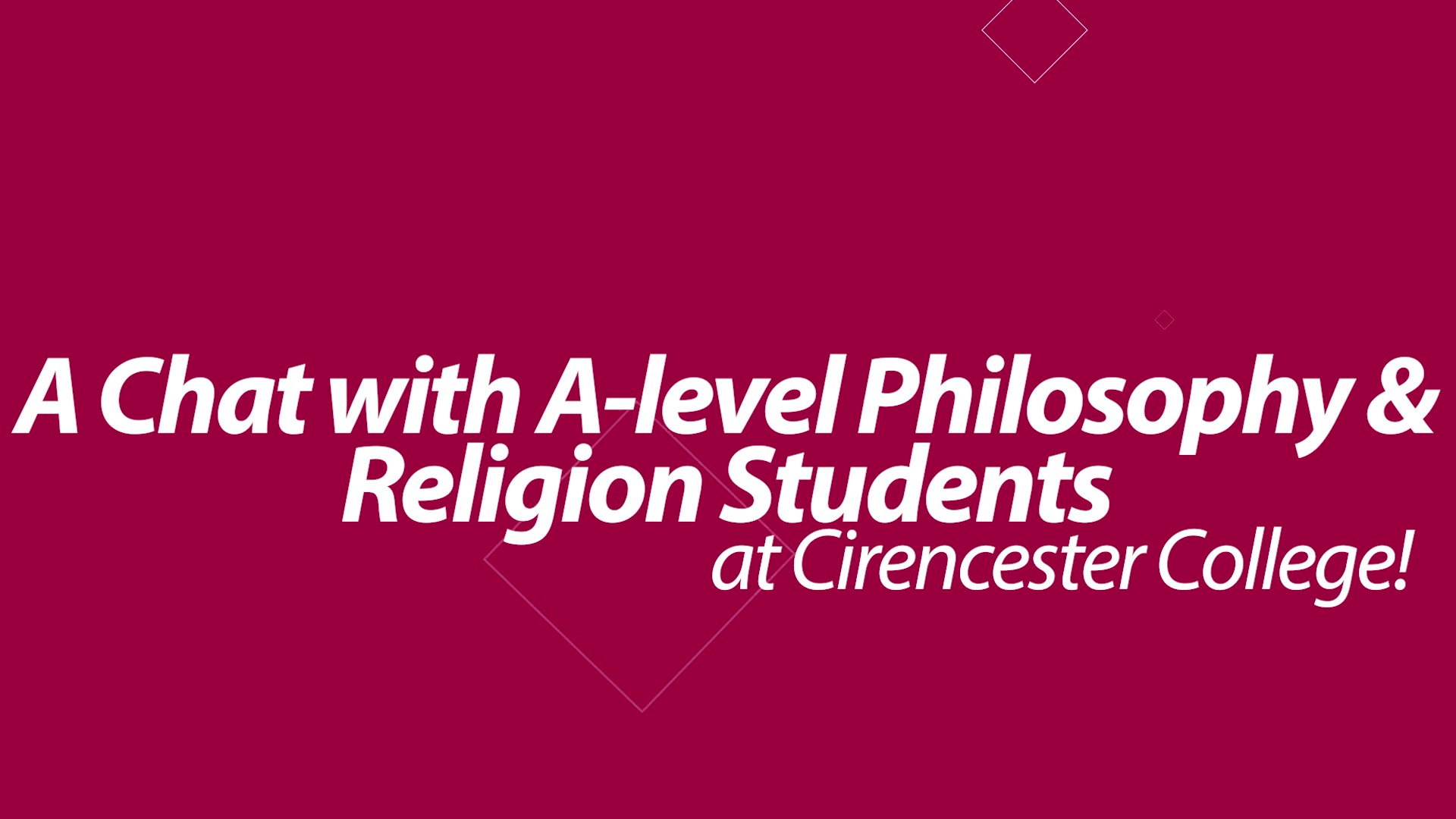DO NOT DELETE OR EDIT THIS ROW OR ITS CONTENTS

Western philosophy includes discussions on the arguments for and against the existence of God, religious experience, the nature of the mind and body and what implications this has for a possible life after death. In Ethics, you will compare and contrast different ethical theories and apply them to ethical dilemmas such as euthanasia, business and sex. You will also study the philosophy of ethical language and the role of the conscience in moral decision making. You will explore Buddhism which is considered by many to be an Eastern philosophy rather than a religion. You will look at teachings on the nature of reality and human life, wisdom, morality and meditation.
What will I study in Philosophy & Religion (Buddhism) A-level?
Philosophy
In year one, students explore the debate over the existence of God, studying arguments for his existence, such as the design and cosmological arguments as well as claims that God does not exist, such as new atheism and the problem of evil.
In year two, students look at miracles and religious experiences, asking what they are and whether they can provide sufficient evidence for the existence of God. They also explore the issues of religious language, asking whether it is possible to talk meaningfully about God.
Ethics
In year one, students study a range of ethical theories, such as utilitarianism, natural law and situation ethics, exploring how they solve ethical dilemmas including capital punishment, polyamorous relationships and animal experimentation.
In year two, students go deeper into the problems of ethics, asking what does it mean to say something is good or bad and should we be held morally accountable for our actions? Or do we have no free will in how we act?
A study of Buddhism
In year one, students examine the life of the historical Buddha and what his story teaches us about Buddhist philosophy and practice. Students also explore key concepts of the buddhist worldview such as karma, rebirth, and the practices designed to overcome suffering.
In year two, students devle into different Buddhist traditions, exploring how they have developed the Buddha's teachings in different cultures around the world. Students also explore how Buddhism has adapted to contemporary challenges such as secularisation, feminism, and social activism.
Entry Requirements
5+ GCSEs at Grade 4 or above from the core subjects, including English Language and Maths.
How will I learn?
Students are expected to complete their pre-reading tasks, which will give them an overview of the topic being explored. Students' knowledge is developed in lessons with videos, further readings and class activities such as card sorts. Students' will then evaluate the topic through a range of discussions and debates. Whilst students are not expected to make lots of notes in lessons, they are expected to create summary materials, essay plans and written essays based on the content they have learnt.
Over the course of the year, students will become confident in reading philosophical texts, writing extended essays, giving presentations and debating with their peers.
How will I be assessed?
Paper 1: Paper 1: A study of Religion (Buddhism)
2 hours. 33.3%
2 essays out of a choice of 5.
Paper 2: Philosophy of Religion
2 hours. 33.3%.
2 essays out of a choice of 5.
Paper 3: Religion and Ethics
2 hours. 33.3%.
2 essays out of a choice of 5.
Any trips?
Trips are an important way to bring to life the ideas discussed in the classroom. The best way to learn about the ideas of religious believers, is to listen to members of that religion. This can include visiting a Buddhist vihara to try some meditation, or discussing theological issues with local clergy. We also offer a range of opportunities to explore how philosophy, ethics and religion can be taken beyond A level, with talks from local universities and annual webinars from Chester University. We are keen to offer an optional overseas trip and may run a trip to Auschwitz, exploring key debates surrounding God, evil and the Holocaust.
Are there any costs involved?
There will be a small charge for course booklets to cover reprographic costs.
Device Requirements
MacBook (8GB RAM minimum | M2 or above)
or
Windows laptop (8GB RAM minimum | Ryzen 3 or Intel i3 12th Gen or above)
If you already own a device that meets the technical requirements of your course, you are welcome to bring it with you to college.
If not, more information on a convenient rental and help-to-buy scheme designed specifically for Cirencester College students is linked below.
FAQs
You do not need to have studied GCSE religious studies to be able to take this A level. The philosophy and ethics modules are quite different from GCSE, and so most of the content covered in these topics will be new to all students - whether they have studied GCSE or not.
The Christianity topic does assume some prior knowledge about Christianity, so if you have not taken GCSE Religious Studies, it would be worth doing some of the Christianity background reading in the Flying Start summer task to ensure you're up to speed for the A level. However, the Buddhism pathway assumes that the module is new to all students, and so no prior knowledge is needed.
Both pathways explore the same topics: a study of the founder and holy books, core beliefs, how the religion is practised and how the religion has changed over the past 100 years or so. However, due to the nature of the two religions Christianity is much more focussed on God, and contains a detailed study of the Bible. In contrast, Buddhism does not really have a God figure, so this religion focuses much more on the nature of reality and the problem of suffering. Another key difference is the language used. Christianity uses mostly Latin terms, and so some students find this easier to understand, whereas Buddhist terms come from Pali and Sanskrit, so there can be a lot of key terms to learn.
Within the first few weeks, we'll remind you once more of the differences between the two pathways. Ultimately, you'll sit exactly the same exam. The philosophy and ethics topics are exactly the same on both pathways. The one & only difference is the religion that you study - either Buddhism or Christianity.
We will need you to be on the correct pathway within the first few weeks of Yr1 though. If you're still unsure, a member of staff will be happy to chat to you about the different pathways at enrolment.
Philosophy and religion provides direct preparation for a wide range of degrees: philosophy, theology, divinity and religious studies, amongst others. There are more that have some overlap such as anthropology, oriental studies and liberal arts degrees, However, with an emphasis on developing critical thinking, evaluative skills and close analysis of texts, the course provides a good foundation for a wide range of humanities degrees. In fact, the most popular degree course Cirencester College students progress on to is Law. However, if university is not for you, then you will develop a number of transferable skills such as the ability to discuss and debate, to consider the viewpoints of others and to be able to present your ideas in a coherent manner.
Awarding Body
WJEC EDUQAS
Available As
[56 UCAS pts. available]

Add to Application
What can I do after I have taken this course?
Available As
[56 UCAS pts. available]

Add to Application

DO NOT DELETE OR EDIT THIS ROW OR ITS CONTENTS
















